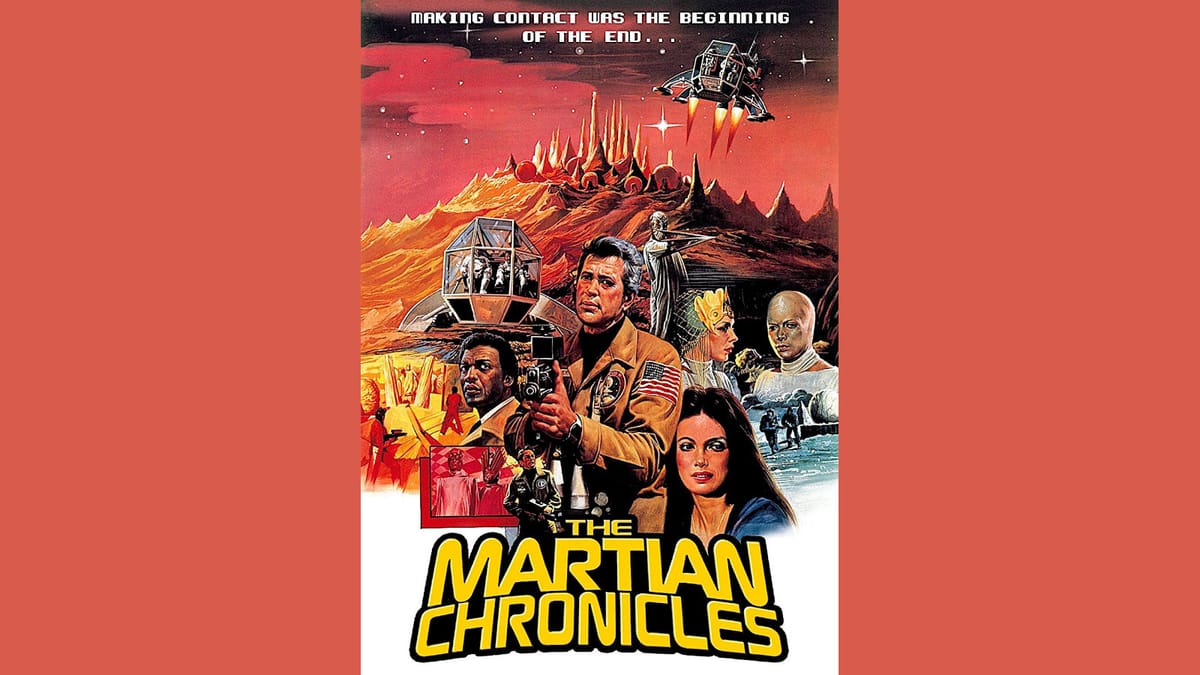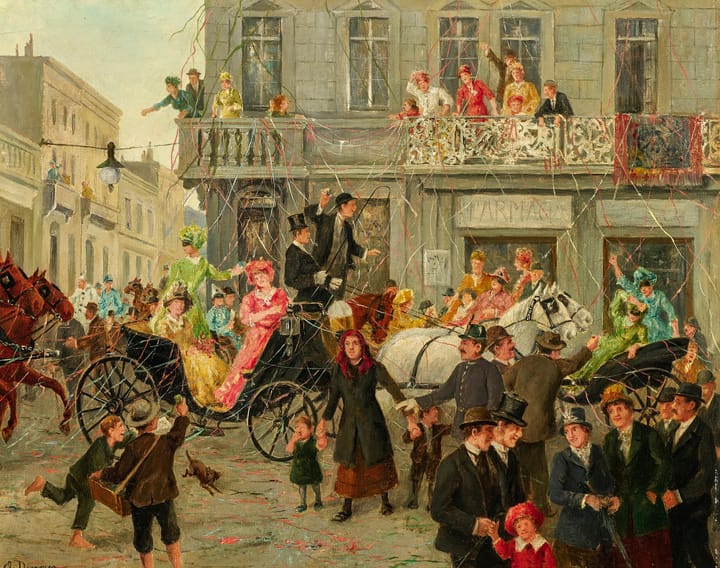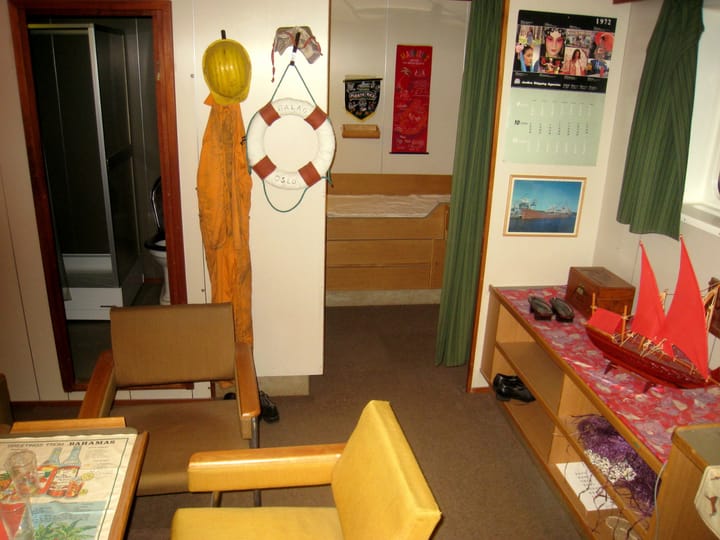My journey with “The Martian Chronicles”: a terrible but nostalgic bit of TV science fiction.
This terrible 1980 show at least gets one thing right: humanity doesn't deserve another planet to screw up like we have this one.

In the last week of January 1980, over three successive nights, the NBC television network aired the three-part miniseries The Martian Chronicles, based on the classic Golden Age science fiction book by Ray Bradbury originally published in 1950. The Martian Chronicles, a joint U.S-U.K. production, was directed by Michael Anderson—director of the somewhat notorious 1956 Academy Award Best Picture winner Around the World in 80 Days—and starred Rock Hudson, Darren McGavin and Bernie Casey. By most accounts the show was forgettable, if not downright terrible. It received mixed reviews and unimpressive ratings. Ray Bradbury himself denounced it as “boring.” The Martian Chronicles was the kind of science fiction show that should deservedly sink into oblivion and forgetfulness, not worth the time of anyone but the most die-hard Bradbury completist, which I am not.
However, I have to confess a kind of nostalgic affection for this boring and forgettable show, which I own on video. I watched it again recently and was struck by many things: its ambition and potential, its failure to deliver on that potential, the things that Bradbury wanted to say about history and humanity that the series mangled, misdelivered or omitted, and ultimately how of-its-time it was. There’s something about late 1970s-early 1980s science fiction, particularly televised science fiction, that created almost unwittingly a unique and distinctive aesthetic. Ray Bradbury wrote The Martian Chronicles, Michael Anderson filmed it, and I watched it all in different eras with distinct and irreconcilable ideas about space travel and the future of humanity. If you put all of its pieces and contexts together, bad as it is, The Martian Chronicles leaves you with a lot to think about.


